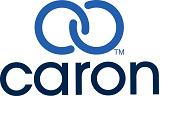Keeping up with the Caron Foundation

The Caron Foundation is running student groups about common mental health challenges.
Starting in the 2019-2020 school year, Southern Lehigh High School introduced several student support groups via the Caron Foundation, a mental health organization, covering topics that commonly affect teens. When the groups were first introduced, former assistant principal Thomas Ruhf, was in charge of coordinating with the Caron Foundation. Now school counselor Mrs. Samantha Trachtman holds this position.
Though the Caron Foundation is well known for its mental health services, this was not the reason the district first enlisted the foundation’s help.
“We all [the administration] saw a huge uptick in drug use and vaping. The Caron Foundation is well known for their drug and alcohol treatment,” high school principal Mrs. Beth Guarriello said. “They also have [a] nationally approved and research-based curriculum for a lot of different topics that teens struggle with.”
Currently, there are groups on eleven topics, a number that will likely remain where it is, according to Mrs. Guarriello. A specialist from the Caron Foundation runs the groups, which typically have ten to twelve members and consist of eight sessions, once per week. As the current groups are on their first round, their impact is not yet known.
“It’s a little tough; I don’t directly communicate with groups, [and] can’t yet tell if students have benefited,” said Counselor Mrs. Samantha Trachtman, “I am proud of the number of groups because they were slow to start. There are four or five groups.”
The past two years have seen the successful rollout of the Caron Foundation groups, albeit with a slight delay for in-person services due to the COVID-19 pandemic. However, just because something isn’t broken doesn’t mean it can’t be improved upon, and this is something that students have ideas about.
“This group of students came to me and said ‘what would you think about us doing a student-lead group’ and I went ‘no, no, no’, so I said ‘you can create your own student group, but there must be a trained and certified counselor with you,’” Mrs. Guarriello said.
Mrs. Guarriello also said that she felt the groups were going well but that the level of success is massively impacted by the quality of the counselor and their ability to connect with students.
Despite all the pros of these groups, they have an achilles heel: the need for parental consent. This creates a possible barrier if a struggling student’s parents do not consent to their child’s desire to seek mental health help; then the child is unable to receive the help they need.
“Parent permission is required [to join the groups] if students are under 18 to ensure parents know what’s going on and are okay with their child getting support,” said Cordes Symmes from the Caron Foundation. “You can’t reach everyone. It’s unfortunate, but we do what we can with what we’ve got.”
For these students, there may be another way to seek help through the school. Under Act 147 of the Pennsylvania General Assembly, any minor over the age of fourteen can seek outpatient services for their mental health. Outpatient means that the treatment occurs without admission to a hospital.
This means students can seek help outside of the Caron Foundation groups. In order to facilitate this, the counseling department at the high school has in place infrastructure to allow them to seek help.
“They can reach out to the guidance office to get support; when you are fourteen, you can consent even if parents don’t agree,” said school psychologist Mr. Cotie Strong. “Fortunately, most families are supportive.”
After a student contacts the counseling department, counselors can make referrals to the in-school therapist, Mrs. Jenna Bowers. This is a new service at Southern Lehigh that some students are already taking advantage of.
“Several kids sought counseling [whose] parents don’t agree or know,” said Mrs. Bower.
The fact that Mrs. Bower is at the high school means she is more accessible to students with families who are not supportive of their decision to seek counseling. That students are legally required to be in school by law removes some obstacles which might otherwise prevent students from receiving the help they need.
“[There’s] easy access to [mental health] treatment in schools if students have issues with transport or parents not supportive of mental health treatment,” Mrs. Bower said.
Mrs. Guarriello said that she hopes students will make an effort to seek help if they need it despite any obstacles they might face.
“Anyone can benefit from help at one time or another,” Mrs. Guarriello said.

Senior Alex Kane is a third-year staff reporter and current Editor-in-Chief and news editor for the Spotlight. He is a captain of the cross country team...

